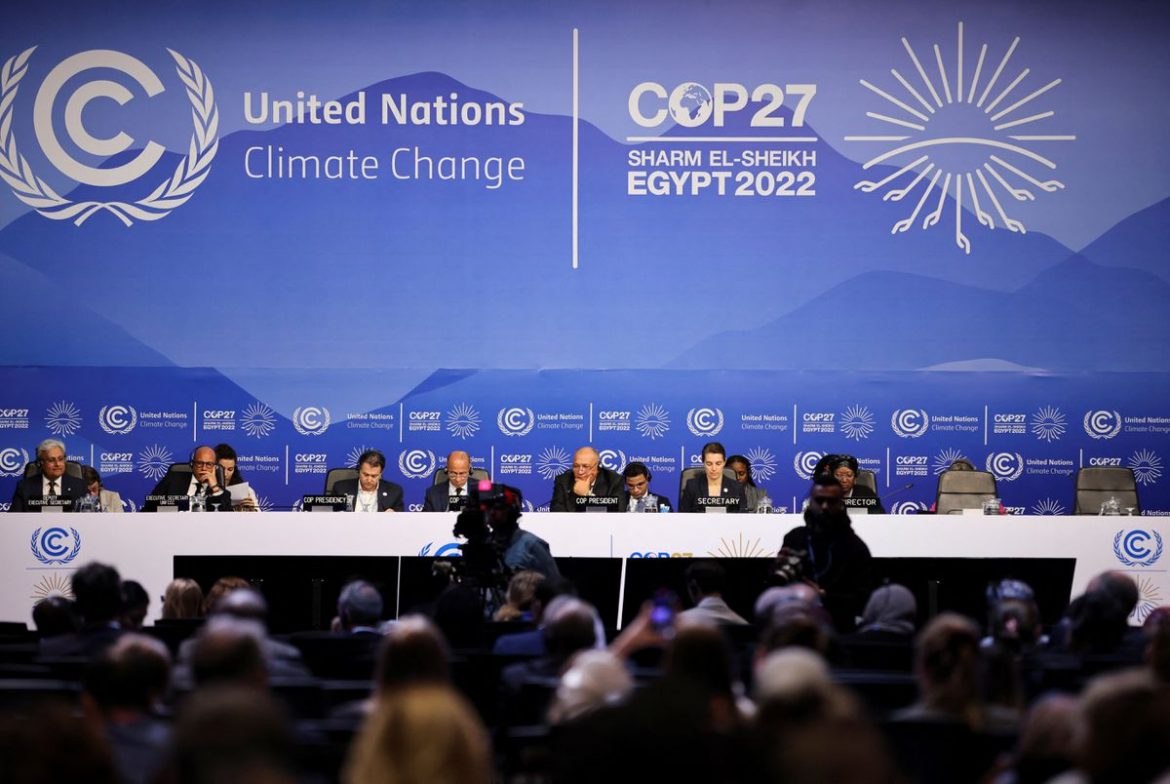Ministers from poor nations on the frontlines of fiercer floods, droughts and storms said the U.N. COP27 talks would let down their hard-hit people if they ended without agreement on a fund to deal with worsening “loss and damage” driven by climate change.
As the summit neared its Friday close with big disagreements unresolved, officials representing 134 developing countries demanded a “political signal” that a loss and damage finance facility would be established and launched by the end of 2024.
“Climate justice delayed will be climate justice denied,” said flood-battered Pakistan’s climate change minister, Sherry Rehman.
She called for “a bargain between the Global North and the Global South” to set up a fund that would later channel billions of dollars to those bearing the brunt of climate change impacts.
“It is of pivotal importance,” she said, noting the recent flood in her country from super-charged monsoon rains – which covered a third of its land – had affected 33 million people.
Read also: Climate Talks: UN leader urges countries to stop ‘blame game’
“Vulnerability should not become a death sentence, because that is what many economies and countries and people are facing,” Rehman said, adding that parts of the world could become uninhabitable if climate change continues unchecked.
The negotiations on how to provide funding for loss and damage – after an early win of getting the issue onto the COP27 agenda – have inched along, despite developing countries submitting a proposal on Wednesday for a new financial facility.
U.N. Secretary-General Antonio Guterres said the time for talking on loss and damage finance was over and urged action.
“No one can deny the scale of loss and damage we see around the globe. The world is burning and drowning before our eyes,” Guterres told journalists at COP27.
“I urge all (government) parties to show that they see it – and get it. Send a clear signal that the voices of those on the frontlines of the crisis are finally being heard,” he added.
Observers at the talks said some donor countries – especially the United States and France – had continued to push back against a deal endorsing the creation of such a facility.
Some rich nations favour using the new Global Shield Against Climate Risks, which will provide insurance and other social protection to get money fast to disaster-hit communities outside the U.N. process, in addition to other potential sources of finance such as development banks.
Brandon Wu, head of policy and campaigns at aid group ActionAid USA, said that the United States was blocking progress on the issue at COP27, and its contribution of $24 million to the Global Shield was far too little.
Story was adapted from Observer.
